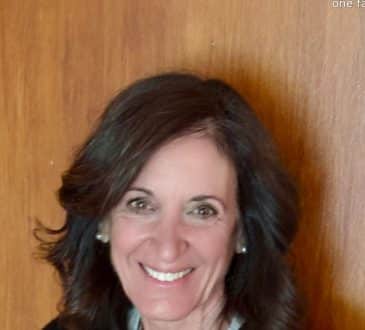5 Questions Successful Salespeople Ask to Improve Their Client Engagement Skills

With all the talk of listening skills in sales, the skill of engagement gets short shrift. This fails everyone — especially clients.
Being a great listener is critically important to succeeding in sales. It’s no wonder, then, that salespeople literally go to school to actively improve their listening skills.
Sadly, however, another skill — one that is equally important — gets short shrift: the skill of client engagement.
With strong engagement skills, successful salespeople not only enrich their discussions with clients, but also elevate and empower their voice. Besides, without them, client meetings would be agonizingly dull and one-sided — like a Shakespearean sales soliloquy that ends abruptly and tragically: “Any questions?”
So what’s the best way to improve your own client engagement skills? One answer lies in the questions you ask. And this starts with knowing the ones to avoid — and the ones to ask.
Questions to avoid
There are countless questions that won’t engage your clients, let alone elevate and empower their voice. But to begin with, steer clear of these three nonstarters.
- “Does that make sense?”
This question is a slippery slope. First, it seemingly casts doubt on your client’s intelligence. Moreover, the word “that” is passive rather than active — denoting something in the past or that is done and over with. This risks making your client feel as if they’d be holding up the show by voicing any comments or concerns. - “Anything else you’d like to add?”
The word “anything” is much too broad in most contexts, including selling. Then there’s the word “else,” which, besides being generic, implies that more is required. So no matter how you slice it, this question is ineffective, as it’s sure to surprise and overwhelm the client. - “Let me pause here to see if anyone has questions?”
For starters, this is a non-question question. What’s more, the idea of needing to “pause,” while well-intentioned, makes what is supposed to be a discussion feel like a speech instead. The problem? By and large, clients don’t interrupt speeches. So make a distinction up front that your meeting isn’t a speech or one-sided presentation — that is, unless it is.
Finally, besides avoiding these three questions, steer clear of this other, all-too-common nonstarter: “If you have any questions, don’t hesitate to interject.”
This speaks to the cardinal sin of client meetings — failing to allow people ample time to chew on and digest information. The good news is that the solution is pretty simple: Work on your pauses. Get comfortable with silence. And learn to watch for your client’s body language.
Questions to ask
Now comes the good stuff. Here are five questions that successful salespeople ask to engage their clients and to elevate and empower their voice.
- “Does this provide a clear picture for you?”
Asking if something you’ve just talked about is clear to your client is a sign of respect. It shows that you care about them and that you want to provide information that is valuable, digestible, and easy to understand. Also, the word “this” — as opposed to “that” — indicates that you are still on the topic at hand and not trying to rush the client ahead. - “Before we go further, where can I provide more detail?”
This question engages clients on information they’ve already consumed, which is far better than asking the more common question: “What else can I add?” This prevents putting your client on the spot — i.e., to come up with something new — plus keeps the conversation flowing naturally. - “Are we completely comfortable with [X]?
I personally like to use this question because it has at least three benefits. First, the language of “we” is positive, welcoming, and forward-looking. Second, it shows you’re confident that your client is tracking with you, yet may still want to clarify a quick thing or two. And third, if a colleague is joining you, it gives them a chance to chime in — perhaps to raise other questions or recap agreements. This is an added bonus, as it re-engages the client and re-enforces key points. - “Does this answer your question in full?”
Many salespeople more commonly ask: “Does that answer your question?” And this, while not a complete nonstarter, seems to beg for a polite yet perfunctory response: “Yes.” By adding the phrase “in full,” you’re creating space for your client to ask follow-up questions or address things that might have gone unanswered. Also, consider this a friendly remember to use “this” — not “that.” - “What key priorities can we add to this starter list?”
The magic in this question is the phrase “starter list.” It acknowledges that you’re not wed to the list as it is and, more importantly, invites additional dialogue and opportunities. And again, the language of “we” is at once personal and powerful.
Finally, besides asking these five questions, be sure to close client meetings with a wrap-up question: “This was a lot of information to cover at once. What would you like to revisit in greater detail?” This recognizes the challenge in soaking up so much new information at one time, and also allows your client to point your work together in a desired direction. The word “revisit” is key, too. It makes the question more accessible, as it’s not insinuating a lengthy discussion.
So, yes, being a great listener is critically important to succeeding in sales. But so is the skill of client engagement. By improving this skill, you will not only enrich your discussions with clients, but also elevate and empower their voice. And now you know where it all begins: with the questions you avoid — and the questions you ask.
Written by Alex Dripchak.
Bring the best of the CEOWORLD magazine's global journalism to audiences in the United States and around the world. - Add CEOWORLD magazine to your Google News feed.
Follow CEOWORLD magazine headlines on: Google News, LinkedIn, Twitter, and Facebook.
Copyright 2025 The CEOWORLD magazine. All rights reserved. This material (and any extract from it) must not be copied, redistributed or placed on any website, without CEOWORLD magazine' prior written consent. For media queries, please contact: info@ceoworld.biz









